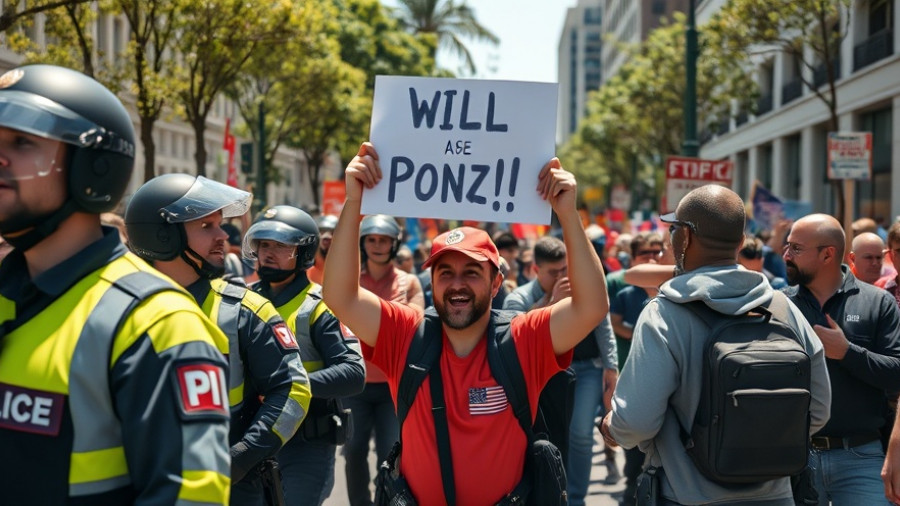
Trump Reverses Course: San Francisco Spared from Federal Troops
In a surprising turn of events, President Donald Trump decided to cancel plans for deploying federal National Guard troops to San Francisco, a move that had garnered widespread criticism. The decision came after outreach from influential tech leaders and the city’s mayor, Daniel Lurie, who emphasized the city's ongoing efforts to combat crime and recover from the impacts of the pandemic. Initial threats to send in federal troops stirred concern in a city already grappling with rising anxiety over public safety.
Tech Leaders Influence Presidential Decisions
Tech moguls, notably Marc Benioff of Salesforce and Jensen Huang of Nvidia, played a pivotal role in swaying Trump’s reconsideration. Both figures expressed confidence in the local administration’s abilities to handle crime, leading Trump to announce on his Truth Social platform that he would defer military involvement. He acknowledged the input from his "friends" in the technology sector, highlighting the weight their opinions carry in national discussions. This intervention illustrates how the voices of prominent business leaders can impact political decisions, especially in tech-centric regions like San Francisco.
Mayor Lurie: A Pragmatic Approach
Mayor Daniel Lurie’s approach has been characterized by avoiding direct confrontation with the federal administration. Instead of engaging in partisan politics, he focused on local issues, asserting that crime is on the decline in San Francisco—overall crime down by 26% and car break-ins at a 22-year low. His message to Trump emphasized that federal deployment would hinder the city’s recovery efforts rather than help them. By presenting data and fostering a collaborative relationship, Lurie successfully conveyed that local governance can take effective action without federal intervention.
Mixed Reactions from the Local Community
The announcement of backing off from federal deployment was met with a mix of praise and skepticism. Many city residents viewed this as a relief, while some expressed concern over the potential isolation of San Francisco amidst broader immigration enforcement measures across the Bay Area. Local leaders from less affluent areas questioned whether similar plans were still in place for neighboring communities like Oakland. The fear of militarization in cities could exacerbate the existing tensions around public safety and civil rights.
The Broader Implications
Trump's decision to spare San Francisco sheds light on larger themes of governance and community resilience during challenging times. As businesses and local leadership strive to manage recovery from the pandemic and engage in progress-oriented dialogue, the outcomes highlight the importance of cooperation between public and private sectors.
For small and medium-sized business owners looking to navigate these unpredictable political landscapes, fostering relationships with local leaders and stakeholders can be pivotal. Engaging in constructive dialogues can help shape narratives that advocate for community well-being and progress. As you steer your business into the future, consider how these dynamics may impact your operations and community relations.
 Add Row
Add Row  Add
Add 










Write A Comment